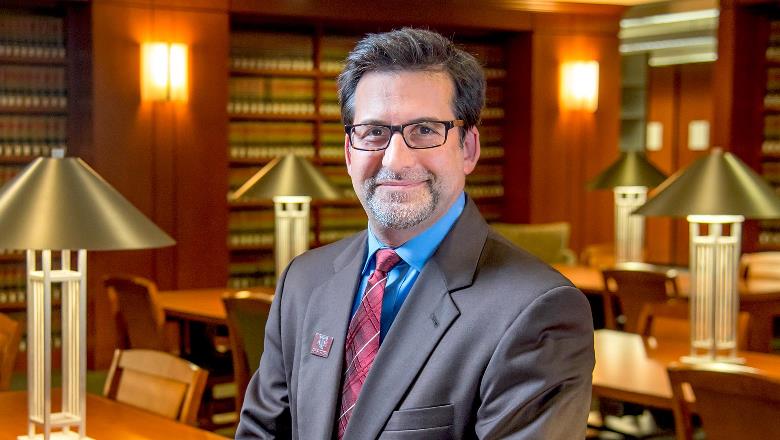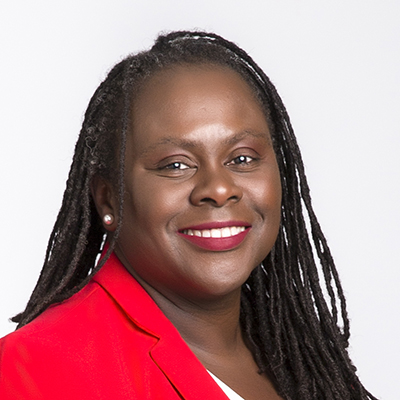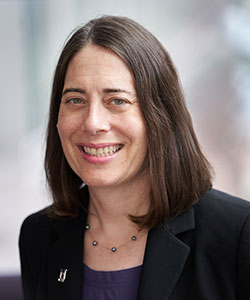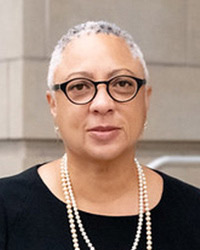Discussion Description:
This session will provide an opportunity for people considering becoming deans to discuss preparing for the dean’s market and key aspects of the job.
*Registration is Required
 Robert Ahdieh, Dean and Anthony G. Buzbee Endowed Dean’s Chair; Vice President for Professional Schools and Programs, Texas A&M University School of Law
Robert Ahdieh, Dean and Anthony G. Buzbee Endowed Dean’s Chair; Vice President for Professional Schools and Programs, Texas A&M University School of LawA graduate of Princeton University’s Woodrow Wilson School of Public and International Affairs and Yale Law School, Robert B. Ahdieh served as law clerk to Judge James R. Browning of the US Court of Appeals for the Ninth Circuit before his selection for the Honor’s Program in the Civil Division of the US Department of Justice.
While still in law school, Ahdieh published what remains one of the seminal treatments of the constitutional transformation of post-Soviet Russia: “Russia’s Constitutional Revolution—Legal Consciousness and the Transition to Democracy.” Ahdieh’s work has also appeared in the Boston University Law Review, Michigan Law Review, Minnesota Law Review, NYU Law Review, and Southern California Law Review, among other journals. Ahdieh’s scholarly interests revolve around questions of regulatory and institutional design, especially in the financial arena. His particular focus has been on various non-traditional regulatory structures and modes of regulation, including those grounded in dynamics of coordination. Though relatively less studied in the legal literature, the framework of coordination holds significant promise both in helping us theorize existing regulatory patterns and in defining new regulatory constructs for the future. Ahdieh has served as a visiting professor at Columbia and Georgetown law schools, as well as at Princeton University. He has also visited at the Institute for Advanced Study, at the University of British Columbia, the University of Warsaw, and Singapore Management University, among other overseas institutions.
 Angela Onwuachi-Willig, Dean, Ryan Roth Gallo & Ernest J. Gallo Professor of Law, Boston University School of Law
Angela Onwuachi-Willig, Dean, Ryan Roth Gallo & Ernest J. Gallo Professor of Law, Boston University School of LawAngela Onwuachi-Willig is dean and Ryan Roth Gallo & Ernest J. Gallo Professor of Law at Boston University School of Law. A renowned legal scholar and expert in critical race theory, employment discrimination, and family law, she joined the law school as dean in August 2018.
Before joining the School of Law, Dean Onwuachi-Willig served as Chancellor’s Professor of Law at the University of California, Berkeley School of Law. Previously, she taught at the University of Iowa College of Law, where she was the Charles and Marion Kierscht Professor and at the University of California, Davis, King Hall, where she was acting (assistant) professor of law. As a classroom teacher at her previous institutions, she taught employment discrimination, evidence, family law, critical race theory, and torts.
Dean Onwuachi-Willig is an elected member of the prestigious American Academy of Arts and Sciences, American Law Institute (ALI), American Bar Foundation, as well as the College of Labor and Employment Lawyers. She is the author of According to Our Hearts: Rhinelander v. Rhinelander and the Law of the Multiracial Family (Yale 2013). Her articles have appeared in leading law journals such as the Yale Law Journal, Virginia Law Review, Northwestern University Law Review, California Law Review, Michigan Law Review, Georgetown Law Journal, Texas Law Review, UCLA Law Review, and Vanderbilt Law Review, to name a few.
Onwuachi-Willig is the recipient of numerous awards, including the EXTRAordinary Woman in Boston Award (2019), the Association of American Law Schools (AALS) Clyde Ferguson Award (2015), the AALS Derrick Bell Award (2006), the Gertrude Rush Award (2016) from the Iowa Organization of Women Attorneys and the Iowa Chapter of the National Bar Association, and Law and Society’s John Hope Franklin, Jr., Prize (2018). Along with her coauthor Mario Barnes, she is the first faculty member to win both the Ferguson and Bell Awards. In the 2017–18 academic year, Onwuachi-Willig served as the William H. Neukom Fellows Research Chair in Diversity and Law at the American Bar Foundation. Most recently, she was one of five black women deans to receive the inaugural AALS Impact Award in recognition of their work in collating the Law Deans Antiracist Clearinghouse Project in 2021.
Onwuachi-Willig received the 2016 Collegiate Teaching Award at the University of Iowa College of Law and the 2012 Marion Huit Award, a University of Iowa award given to a faculty member in recognition of outstanding teaching and assistance to students, exceptional research and writing, and dedicated service to the University and the surrounding community. Other honors include her selection as a finalist for the Supreme Court of Iowa in 2011; identification by the National Law Journal as one of the “Minority 40 under 40” in 2011 and by Lawyers of Color as one of the “50 Law Professors of Color Under 50” in its inaugural list in 2013; and election to the Iowa Bar Foundation.
Dean Onwuachi-Willig serves on the Grinnell College Board of Trustees, the Law School Admissions Council Board, the Purple Campaign to End Sexual Harassment Advisory Board, and the Board and Executive Committee of the Law and Society Association. She serves on Senators Warren and Markey’s Judicial Selection and U.S. Attorney Selection Committees; is a member of the AALS Law Deans Section Executive Committee, the AALS Deans Steering Committee, and the Law Deans Advisory Committee to U.S. News and World Report; serves on the Supreme Judicial Court (SJC) Standing Committee on Lawyer Well-Being while chairing the Law School Subcommittee; and chairs the SJC Committee on Character and Fitness. She also served as the the chair for AALS Committee on the Recruitment and Retention of Minority Law Teachers and Students for two years, leading the committee as it drafted and developed an official Statement of Good Practices on the Recruitment and Retention of Minority Law Teachers. She also is the founder of the Lutie A. Lytle Black Women Law Faculty Workshop, which has resulted in the production of many books and hundreds of articles and essays by its participants and has assisted dozens of women on the path to tenure.
Onwuachi-Willig graduated from Grinnell College, Phi Beta Kappa, and received her JD from the University of Michigan, where she was a Clarence Darrow Scholar, a Michigan Law Review note editor, and an associate editor for the founding issue of the Michigan Journal of Race and Law. After law school, she clerked for US District Court Judge Solomon Oliver of the Northern District of Ohio and US Sixth Circuit Judge Karen Nelson Moore. She received her PhD in sociology and African American studies from Yale University. She has practiced law as a labor and employment associate at Jones Day in Cleveland, Ohio and Foley Hoag in Boston, Massachusetts.
 Hari M. Osofsky, Dean and Myra and James Bradwell Professor of Law, Professor of Environmental Law and Culture (courtesy), Northwestern University Pritzker School of Law
Hari M. Osofsky, Dean and Myra and James Bradwell Professor of Law, Professor of Environmental Law and Culture (courtesy), Northwestern University Pritzker School of LawHari M. Osofsky is dean and Myra and James Bradwell Professor of Law at Northwestern Pritzker School of Law and Professor of Environmental Policy and Culture (courtesy) at the Weinberg College of Arts and Sciences.
As dean, her leadership has focused on advancing the innovation that is needed at this time of change in the legal profession and society. This has included ambitious faculty hiring, cutting-edge interdisciplinary research and teaching initiatives, and concrete action to advance diversity, equity, and inclusion and social and racial justice. She also is very involved in mentorship and sponsorship to support greater diversity in law school and university leadership. The American Bar Association’s Legal Technology Resource Center recognized her as one of the 2019 Women of Legal-Tech.
Dean Osofsky’s over 50 publications focus on improving governance and addressing injustice in energy and climate change regulation. Her scholarship includes books with Cambridge University Press on climate change litigation, textbooks on both energy and climate change law, and articles in leading law and geography journals. Dean Osofsky’s Emory Law Journal article, Energy Partisanship, was awarded the 2018 Morrison Prize, which recognizes the most impactful sustainability-related legal academic article published in North America during the previous year. Dean Osofsky has collaborated extensively with business, government, and nonprofit leaders to make bipartisan progress on these issues through her leadership roles and teaching. She is a fellow of the American College of Environmental Lawyers.
Her professional leadership roles have included, among others, serving as president of the Association for Law, Property, and Society and as a member of the Dean’s Steering Committee of the American Association of Law Schools, Executive Council of the American Society of International Law, International Law Association’s Committee on the Legal Principles of Climate Change, Board of Governors of the Society of American Law Teachers, and editorial board of Climate Law. Her leadership and mentorship work was recognized by the Association for Law, Property, and Society’s 2016 Distinguished Service Award and the University of Minnesota 2015 Sara Evans Faculty Woman Scholar/Leader Award.
Dean Osofsky received a PhD in geography from the University of Oregon and a JD from Yale Law School. She clerked for Judge Dorothy W. Nelson of the Ninth Circuit Court of Appeals. Prior to joining Northwestern University, Dean Osofsky served as dean of Penn State Law and the Penn State School of International Affairs and on the faculties of University of Minnesota Law School, Washington and Lee University School of Law, the University of Oregon School of Law, and Whittier Law School.
 Sean M. Scott, President and Dean, California Western School of Law
Sean M. Scott, President and Dean, California Western School of LawSean Scott joined the California Western School of Law as dean and president in 2020. She was previously senior associate dean and associate dean for faculty at Loyola Law School, Los Angeles, where she expanded legal education through a variety of innovative programs including a Master of Science in Legal Studies, the Cybersecurity and Data Privacy Law program, and the Fashion Law Project.
Her innovative approach extended to the classroom as well, resulting in numerous honors, including the Student Bar Association’s prestigious Excellence in Teaching Award and the Black Law Students Association’s Distinguished Faculty Award.
Dean Scott’s academic interests include legal education, contracts, and disability rights. Her most recent article, Contractual Incapacity and the Americans with Disabilities Act, was published in the Dickinson Law Review and has been recognized by JOTWELL as one of the best works of recent scholarship in the areas of both contracts and elder law. Dean Scott speaks frequently on the topic of legal education and the diversification of the legal academy. Dean Scott currently serves on the Board of Governors of SALT and has served as Associate Director of the Association of American Law Schools (AALS).
Before joining academia, Scott was an associate in the Los Angeles office of Manatt, Phelps & Phillips, LLP. She earned her Juris Doctor from New York University School of Law and her Bachelor of Arts from Smith College